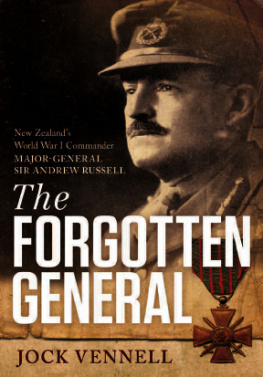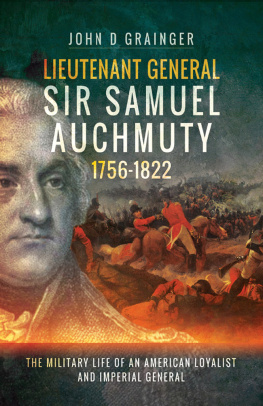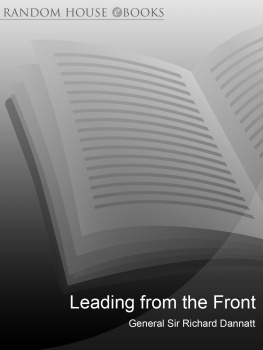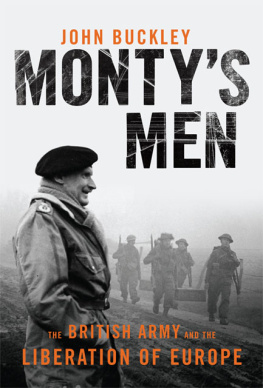

Copyright 2014 General Sir David Richards
The right of General Sir David Richards to be identified as the Author of the Work has been asserted by him in accordance with the Copyright, Designs and Patents Act 1988.
Apart from any use permitted under UK copyright law, this publication may on ly be reproduced, stored, or transmitted, in any form, or by any means, with prior permission in writing of the publishers or, in the case of reprographic production, in accordance with the terms of licences issued by the Copyright Licensing Agency.
Every effort has been made to fulfil requirements with regard to reproducing copyright material. The author and publisher will be glad to rectify any omissions at the earliest opportunity.
First published as an Ebook by Headline Publishing Group in 2014
Cataloguing in Publication Data is available from the British Library
eISBN: 978 1 4722 2086 8
HEADLINE PUBLISHING GROUP
An Hachette UK Company
338 Euston Road
London NW1 3BH
www.headline.co.uk
www.hachette.co.uk
Contents
About the Book
General Sir David Richards is one of the best known British generals of modern times. In 2013 he retired after over forty years of service in the British Army and a career that had seen him rise from junior officer with 20 Commando to Chief of the Defence Staff, the professional head of the British Armed Forces.
He served in the Far East, Germany, Northern Ireland and East Timor. He was the last Governor of Berlins Spandau Prison, when Rudolf Hess, Hitlers deputy, was its sole prisoner. In 2005 he was appointed Commander of the Allied Rapid Reaction Corps in Afghanistan and as commander of NATO forces became the first British General to command US Forces in combat since the Second World War.
In 2000, Richards won acclaim when he brought together a collaboration of forces in Sierra Leone to stop the ultra-violent Revolutionary United Front from attacking the capital, Freetown. In so doing he ended one of the bloodiest civil wars to bedevil the region. He did so without the official sanction of London, and failure could have cost him his career.
As Chief of the Defence Staff he advised the government during the crises and interventions in Libya and Syria and oversaw the controversial Strategic Defence and Security Review.
Taking Command is Richards characteristically outspoken account of a career that took him into the highest echelons of military command and politics. Written with candour, and often humour, his story reflects the changing reality of life for the modern soldier over the last forty years and offers unprecedented insight into the readiness of our military to tackle the threats and challenges we face today.
About the Author
Baron Richards of Herstmonceux served in the Far East, Germany and Northern Ireland before commanding deployments in East Timor and Sierra Leone, where his intervention in the civil war, without official sanction from London, proved decisive in ending years of factional fighting. He later served with NATO and led ISAF forces in Afghanistan.
David Richards became Commander-in-Chief Land Forces of the British Army in 2008 and held that role until 2009, when he was appointed Chief of the General Staff. In 2010 he was appointed as Chief of the Defence Staff, the professional head of the British Armed Forces, and served in that position until 2013. He was made a Life Peer in February 2014.
To Caroline, Joanna and Pippa, without whose love
and support much of what follows would not have
happened or been nearly so rewarding.
Foreword
Great commanders of history, up to and including the Second World War, became household names in their own societies. It was taken for granted that soldiers existed to fight for their nations wherever the bugle called. Today, while the British Army still enjoys the affection as well as respect of the British people, few warriors become celebrities. We inhabit an increasingly risk-averse world in which ignorant people, including some coroners, suppose that if wars are properly conducted, in accordance with Health & Safety Executive guidelines, nobody should get killed. Governments striving to save money which means all of them hack away at the defence budget, confident that doing so will not cost them votes, as do cuts in welfare or the NHS. Few prime ministers have much notion of strategy. Most think of the armed forces only when they want to inspect a guard of honour, or to indulge some headline-grabbing lunge into intervention abroad, often without giving a moments thought to where this might lead them and Britain.
Thus our modern generals have a tough row to hoe. If they become Chiefs of Staff, sooner or later most face a choice between acquiescing in some folly devised by Downing Street in the later watches of the night, or arguing the toss with the prime minister of the day, and earning a reputation as difficult. David Richards has always been difficult, which is why some of us like and respect him so much. In his early career in command, he played a distinguished role in the troubles of Sierra Leone, East Timor and Afghanistan. When he became head of the Army and then Chief of the Defence Staff, he was obliged to grapple with two prime ministers determined to do foolish things.
Gordon Brown commissioned two giant aircraft-carriers, which some of us and David Richards declared from the start were an unaffordable nonsense that would cripple the Royal Navy by devouring a giants share of its resources. Britain does not engage in political pork-barrelling on anything like the American scale, but it is hard to identify any rationale for Browns decision beyond that of pumping billions of pounds into the Scottish economy, and preserving jobs in Labour constituencies. I have compared the carriers to the ancient Egyptian pyramids, because they consume enormous labour to produce an outcome of no practical utility. David Richards was courageous enough to fight tooth and nail against the carrier commitment, and I am sure posterity will respect him for having done so. He also, of course, staunchly resisted the Cameron Coalitions defence cuts, most notably the reduction of the Army to 82,000 men. This, again, was a political decision based upon no credible strategic calculation but, instead, upon a back-of-an-envelope guesstimate about what the government reckoned it could get away with.
In this memoir, the former Chief of the Defence Staff describes the immensely difficult arguments between politicians and soldiers, and also between Britain and the United States and other allies about options for intervention in Libya and Syria. It is no secret that David considerably annoyed his political masters by rejecting some of their more schoolboyish ideas, especially those relating to Syria, and by insisting that any British military action should be operationally sound, rather than driven by media soundbite. It may sound trite to say that he is sensible as well as clever, but common sense often flies out of the window when governments decide to play soldiers. David never forgot that the stakes whether in Ireland or Sierra Leone, Afghanistan or Libya were the lives of his men by land, sea and air.
He was also sensitive to the need for a local political underpinning for any military action. For Western forces merely to kill enemies and win battles is meaningless unless there is something to join up to in the phrase of the US Armys splendid guru, General H.R. McMaster a credible polity. Whether in Vietnam, Iraq, Libya or Syria, it is never enough for Western leaders simply to identify tyrants whom they wish to remove, foes they believe should be destroyed; there must also be some local grouping morally and politically worthy of Western support, something to fight for . I remember Douglas Hurd saying to me in the 1990s, when he was foreign secretary, Your military friends, Max, should grasp the fact that often they wont get the clarity of purpose, the fixed objectives they want. It may be necessary sometimes to take some action simply to avert a humanitarian disaster, and worry later about what comes afterwards. I understood then, and accept now, what Douglas was saying. But politicians, in their turn, should recognise that commanders obstructionism as the Cameron camp viewed the Chiefs of Staffs caution about Syria, for instance was founded in a prudent consciousness that it would be disastrous to plunge into a morass without some notion about how to get out again.
Next page




















